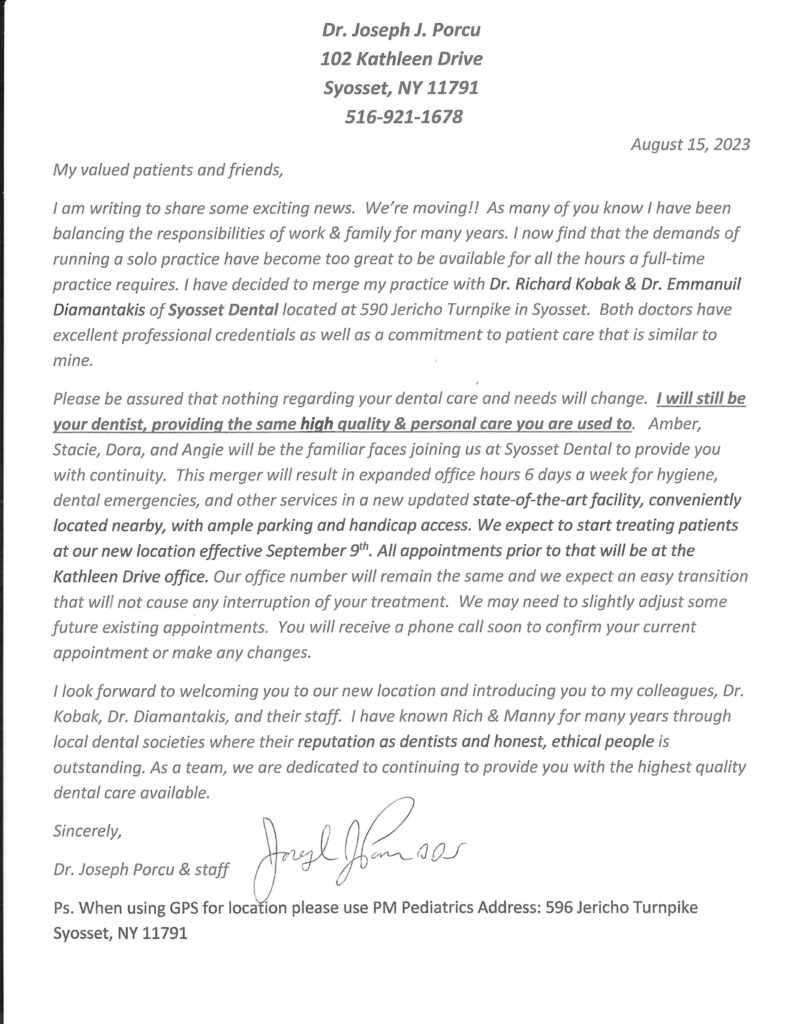 Most people recognize preventive dental care as the routine checkups and cleanings that they need to schedule on a routine basis. Many people also recognize the connection between their daily dental hygiene routine and the success of their overall preventive dental care. However, there are still many questions that you might have about the point and processes of your preventive dental health care. Today, we answer a few of them, including what happens when prevention fails and you develop an oral health concern.
Most people recognize preventive dental care as the routine checkups and cleanings that they need to schedule on a routine basis. Many people also recognize the connection between their daily dental hygiene routine and the success of their overall preventive dental care. However, there are still many questions that you might have about the point and processes of your preventive dental health care. Today, we answer a few of them, including what happens when prevention fails and you develop an oral health concern.
How many appointments do I need a year?
One of the most common questions people may have about preventive dental care in general is how many preventive dental appointments are necessary every year. The point of each visit is similar to why you have to brush and floss your teeth consistently every day – to prevent the excessive buildup of oral bacteria on your teeth and along your gum line. When you brush and floss at home, your goal is to prevent as much plaque buildup as you can from remaining on your teeth. Any spots that you miss, however, will calcify into tartar, and will no longer be removable with toothpaste and water. Professional checkups and cleanings should be scheduled as consistently as necessary to successfully control tartar buildup and raise your chances of preventing it from causing tooth decay or gum disease, or from exacerbating any existing oral health concerns you may have.
What can I do at home to prevent dental problems?
The most important thing you can do at home is to stick to a consistent schedule of brushing your teeth at least twice and flossing at least once every day. However, preventing oral bacteria from causing harm to your teeth and oral tissues can sometimes mean more than just brushing and flossing them away. Oral bacteria become active when they consume minerals and nutrients from your food and beverages. Eating responsibly, such as sticking to a consistent schedule of meals and snacks, and limiting the amount of sugar you consume, can play an important role in keeping oral bacteria from becoming overly active throughout the day.
What happens if prevention fails?
While preventive measures like good dental hygiene and preventive dental appointments can significantly improve your chances of avoiding dental health concerns, they aren’t a guarantee. For some people, concerns may develop that can’t be prevented, or despite their best efforts at preventing them. If this occurs, then your routine schedule of checkups and cleanings will become even more important, as your dentist can spot the early signs of concerns during your examination. If this occurs, your dentist will consult with you to thoroughly explain the situation and help you determine the best treatment option for addressing it.
Learn more about preventive dental care
Preventive dental care may entail more than you realize, and its importance can have a long-lasting impact on your smile and oral health. To learn more, contact our office by calling Syosset Dental in Syosset, NY, today at 516-433-2211 or 516-921-1678.











